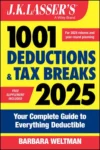Disposing of Your Vacation Home
The economy in general and the housing marketing in particular may get you thinking about disposing of a second home. It may be too costly to keep, you may need the funds for other purposes, use of the property has diminished because of changes in your family, or the prospect of a substantial rise in property values in the near future is dim. It’s hard to find buyers because they now have to make sizable down payments (35% or more) to obtain a mortgage. Here are the tax ramifications of disposing of your vacation property.
Gain on a Sale
If you’ve owned the vacation property for years, a sale may still generate a profit, even in this still poor housing market. Any gain on the sale of a vacation home doesn’t qualify for the home sale exclusion; the exclusion of $250,000 ($500,000 on a joint return) applies only to a principal residence. Thus, gain on the sale of a vacation home is taxed at a maximum of 15% at the federal level; there may be state income tax costs as well.
If you previously used a vacation home that you now use as your principal residence, you can qualify for the exclusion if you’ve owned and lived in the home for at least 2 years during the 5 years prior to the date of sale. However, the exclusion does not apply to the portion of gain related to “nonqualified use.” Nonqualified use means using the residence as a vacation home after 2008. Thus, if you use the vacation home for all of 2009 and start using it as your principal residence on January 1, 2010, a sale after January 1, 2012 (when the 2-year rule is met) can qualify for the exclusion, but not the portion of gain related to the nonqualified use in 2009.
Tax-free exchange. If you can’t claim the exclusion for any reason (it is still your vacation property), you may be able to postpone reporting the gain by trading the property for other vacation property. Under the like-kind exchange rules, a trade qualifies if both the property relinquished and the newly acquired property are held for investment. Thus, you’ll have to show that both the old and replacement property are being used as investment properties, which would mean that they have been rented out for a minimum period.
There is a safe harbor under which the IRS will not challenge whether a dwelling unit qualifies as investment property for purposes of the like-kind exchange rules. The properties are considered investment property if three conditions are met:
- Each property is owned for at least 24 months.
- The owner rents the property at a fair rental for 14 days or more during those 24 months before and 24 months after the trade.
- The homeowner’s personal use does not exceed 14 days or 10% of the number of rental days during a 12-month period (for each of the two 12-months prior to the trade and two 12-month periods after the trade).
Sales at a Loss
If you sell your vacation home at a loss, you cannot deduct the loss. No write-off is allowed for a loss on a personal asset. There have been proposals in Congress to allow a loss deduction for principal residences; the proposals have not yet been enacted, and even if they are, they likely won’t apply to vacation homes.
Foreclosures
Some owning vacation homes with large mortgages may simply walk away to avoid making monthly mortgage payments. If you default on the mortgage and your lender forecloses on your vacation home, forgiving any remaining mortgage balance, the debt forgiveness is taxable. It is reported to you and to the IRS on Form 1099-C. The break for 2007 through 2012 for cancellation of debt income applies only to a principal residence and not to vacation property.
What to Do When You Can’t Sell
If you’re trying to sell without any luck, consider renting the property. If you convert from a personal-use vacation home to an income-producing rental property, you’ll reap certain benefits:
- Cash flow from rents to cover some or all of the expenses of the home. Rental income is taxable, but can be offset by rental expenses.
- A tax deduction for expenses related to the rental (although various limits apply).
- A deductible loss on an eventual sale for any decline in value experienced after the conversion to rental property.
Talk to your tax advisor when considering the conversion of a vacation home to rental property.
Real estate investment trust (REIT)
An entity that invests primarily in real estate and mortgages and passes through income to investors.



